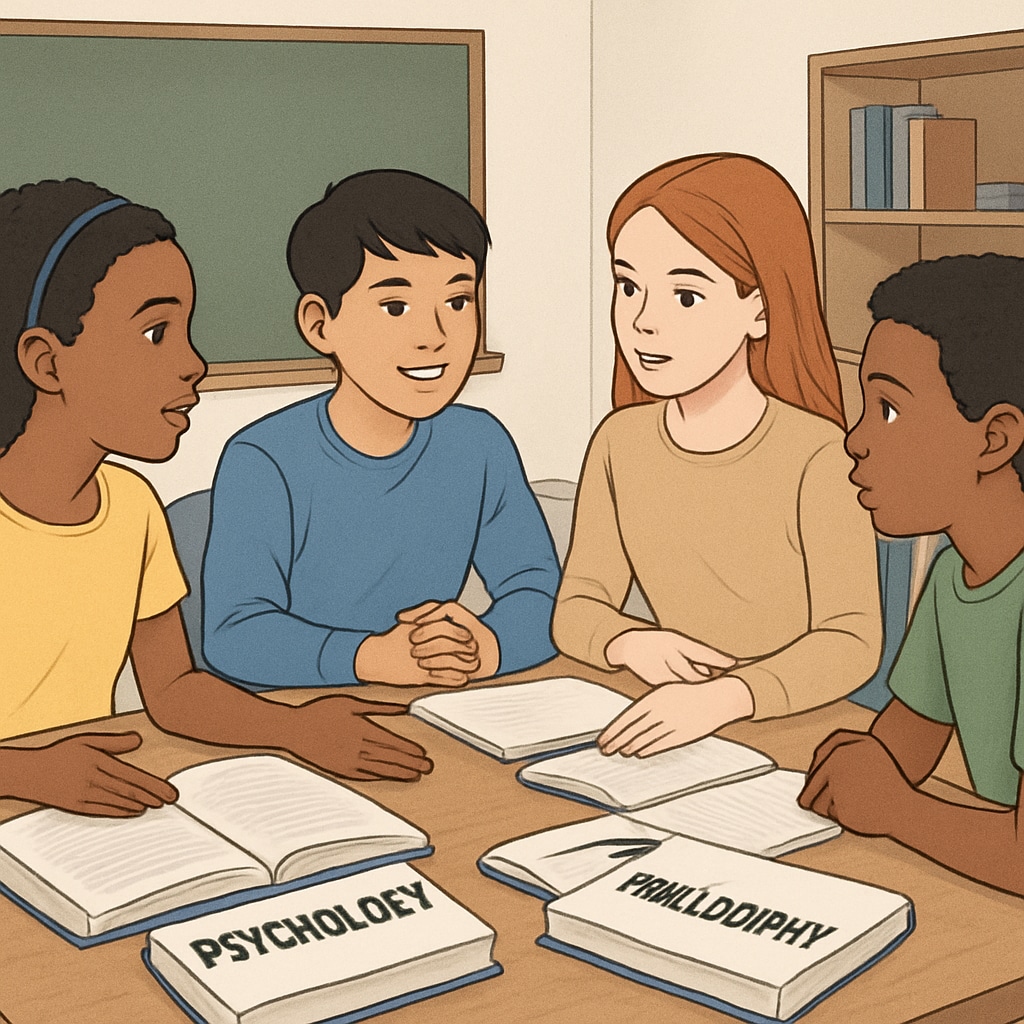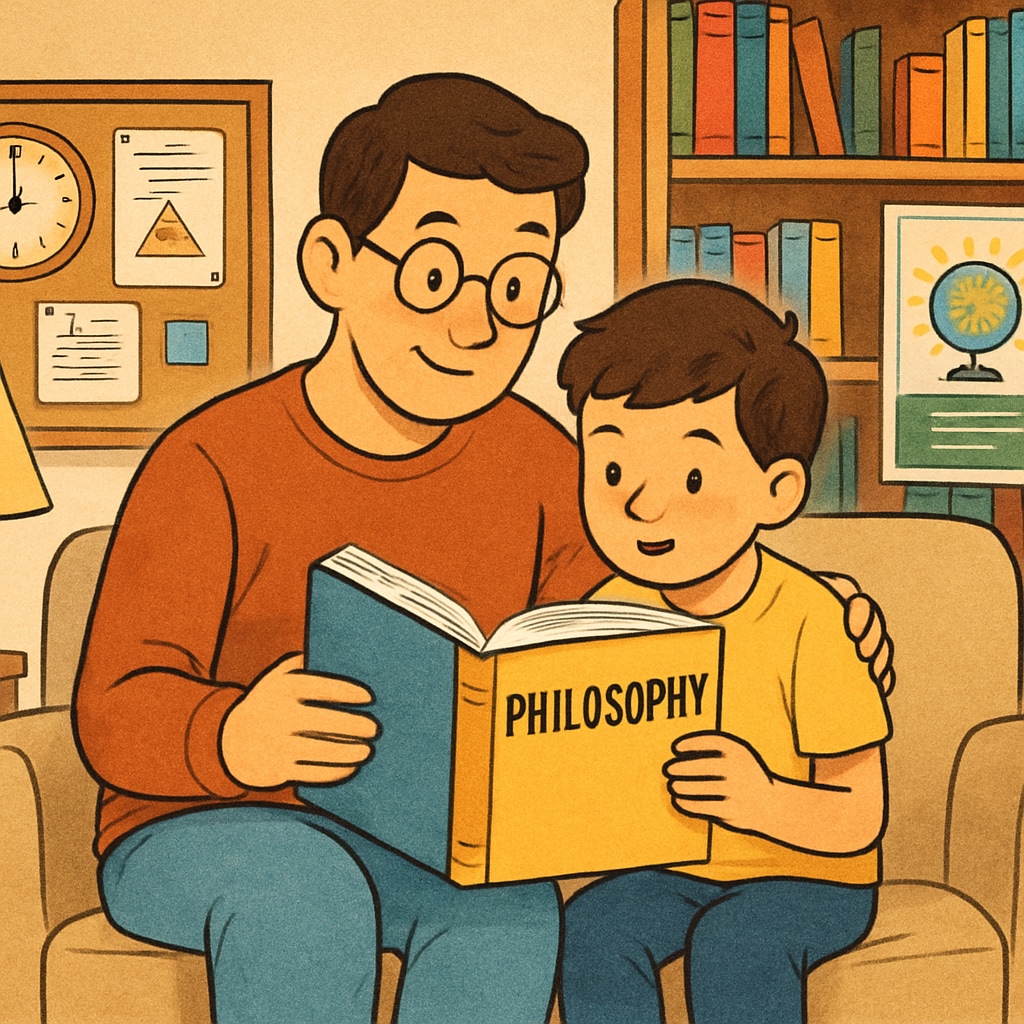Psychology, philosophy, and self-directed learning are powerful tools that help students build critical thinking skills and improve their self-awareness. Introducing these concepts during the K12 phase can transform how students perceive themselves and the world around them, nurturing a lifelong love for learning. While schools often focus on structured curricula, engaging in these disciplines as extracurricular activities can offer students a unique edge in their personal and academic growth.
Why Start Psychology and Philosophy in K12?
The K12 stage is a formative period during which students develop habits, values, and perspectives that last a lifetime. Psychology, the study of the mind and behavior, helps students understand their emotions, thoughts, and actions. Philosophy, on the other hand, encourages them to ask profound questions about existence, ethics, and knowledge. Together, these fields cultivate critical thinking, empathy, and intellectual curiosity.
Studies show that exposing children to these disciplines early on can improve their problem-solving skills and emotional intelligence. For instance, understanding basic psychological concepts like motivation or cognitive biases can help them navigate school and social relationships. Similarly, philosophical discussions about fairness or morality can shape their ethical frameworks.

Accessible Resources for Amateur Learning
For students and parents looking to explore psychology and philosophy outside the classroom, there are plenty of beginner-friendly resources. Here are some recommendations:
- Books: Start with accessible texts like “The Psychology Book” by DK or “Sophie’s World” by Jostein Gaarder. These provide a clear overview of key concepts in an engaging manner.
- Podcasts and Videos: Platforms like YouTube and Spotify host channels such as CrashCourse, which offers short, insightful lessons on philosophy and psychology.
- Apps: Apps like “Headspace” can introduce concepts of mindfulness and emotional regulation, while “Philosophy Now” provides bite-sized philosophical ideas.
- Interactive Activities: Encourage journaling or Socratic dialogues at home. Asking open-ended questions like “What makes something right or wrong?” can spark deep conversations.
These resources are designed to be approachable, making it easy for students to start their journey into these fascinating fields.
Incorporating These Disciplines into Daily Life
Learning psychology and philosophy doesn’t have to feel like homework. There are many ways to seamlessly integrate these subjects into daily routines:
- Mindful Observations: Encourage students to reflect on their thoughts and emotions during the day. This practice nurtures self-awareness, a core principle in psychology.
- Debate and Discussion: Host family debates on philosophical topics, such as “What is happiness?” or “Can we ever truly know something?” This builds critical thinking and communication skills.
- Real-World Applications: Discuss events in the news or personal experiences through the lens of psychological theories and philosophical principles. For example, explore the psychological effects of social media or the ethical implications of AI.

Overcoming Common Challenges
One of the biggest obstacles to introducing psychology and philosophy at the K12 level is the fear that these topics may be too abstract or complex for younger students. However, with the right resources and approach, these subjects can be made both accessible and enjoyable. For instance, using stories, metaphors, or age-appropriate examples can simplify complex ideas.
Another challenge is maintaining consistent interest. To address this, parents and educators can connect the topics to students’ everyday lives. For example, discussing how psychological principles apply to their favorite sports or games can make the content more relatable.
Finally, it’s important to focus on fostering curiosity rather than mastery. The goal is to encourage students to ask questions and explore ideas, not necessarily to memorize theories or philosophers.
Conclusion: A Lifelong Learning Journey
By exploring psychology and philosophy during the K12 years, students gain tools that extend beyond academics. They develop the ability to think critically, empathize with others, and understand themselves better. These disciplines lay the foundation for a lifetime of intellectual and personal growth. With accessible resources, practical applications, and a supportive learning environment, anyone can begin their journey into the realms of the mind and wisdom.
Start small but dream big. As the philosopher Socrates famously said, “An unexamined life is not worth living.” By examining their lives, students can unlock the doors to endless possibilities.


